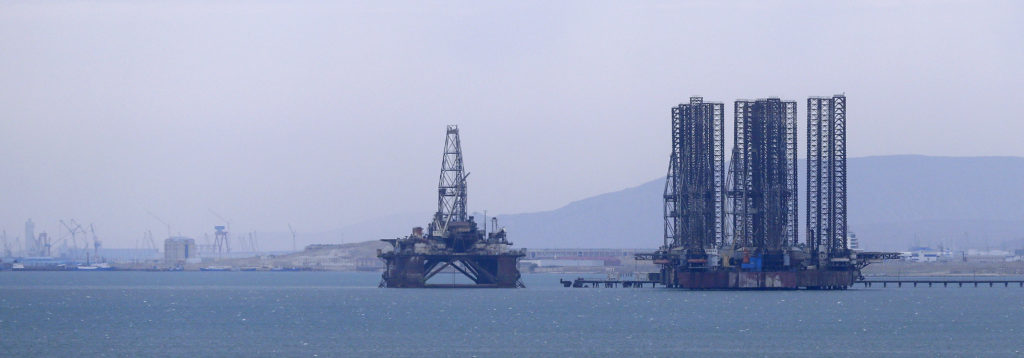BAKU
Azerbaijan is ready to provide its oil and gas pipelines for the transit of hydrocarbons from Turkmenistan, Rovnag Abdullayev, the state energy firm SOCAR’s president, said, in a bid to strengthen energy cooperation between two former Soviet countries.
“SOCAR is ready to share with companies from brotherly Turkmenistan the vast capabilities of the Southern Gas Corridor and the Baku-Tbilisi-Ceyhan oil pipeline for transporting the richest Turkmen resources to international markets,” Abdullayev said at the international forum on attracting investments in Turkmenistan’s oil and gas sector that had been held in the capital Ashgabat.
Azerbaijan started commercial natural gas supplies to Europe from the second stage of a giant offshore Shah Deniz gas project via its $40-billion Southern Gas Corridor in December 2020, when the corridor’s last part, the TAP, was launched. The project is aimed at reducing Europe’s dependence on natural gas supplies from Russia, which currently controls 34 percent of the continent’s gas market.
The BP-led consortium, which develops Shah Deniz project in Azerbaijan, has been pumping gas from the offshore field’s first phase since 2006, delivering more than 10 billion cubic metres (bcm) a year of gas to Azerbaijan, Georgia and Turkey.
The second phase started output in 2018, adding 16 bcm of gas production capacity at its peak to bring total capacity to 31 bcm.
Azerbaijan aims to supply European gas markets with 10 bcm of gas a year, including 8 bcm to Italy and a combined 2 bcm to Greece and Bulgaria.
Baku-Tbilisi-Ceyhan (BTC) via Georgia and Turkey has been operating since 2006 exporting oil from a major Azeri-Chirag-Guneshli (ACG) oil bloc developed by a BP-led international consortium.
Since the 1,768 km BTC pipeline became operational in June 2006 till the end of the first quarter of 2021, it carried a total of 3.62 billion barrels (about 482 million tonnes) of crude oil loaded on 4,729 tankers and sent to world markets.
In the first quarter of 2021, around 51 million barrels (more than 6.7 million tonnes) BTC-exported crude oil was lifted at Ceyhan loaded on 70 tankers.
The BTC pipeline currently carries mainly ACG crude oil and Shah Deniz condensate from Azerbaijan. In addition, other volumes of crude oil and condensate continue to be transported via BTC, including volumes from Turkmenistan, Russia and Kazakhstan.
Abdullayev also said that a Memorandum of Understanding that had been signed between Azerbaijan and Turkmenistan over joint exploration and development of hydrocarbon resources of the Dostlug (“Druzhba”) field in the Caspian Sea was “an excellent example of cooperation.”
The breakthrough agreement was signed in January this year. The field’s ownership had been disputed between Baku and Ashgabat for nearly 30 years and experts say that reaching an agreement between sides has cleared the way for the long-anticipated Trans-Caspian pipeline to Europe.
Although the field’s exact reserves are unknown, they are estimated at 50-100 million tonnes of oil and 30 bcm of gas.

